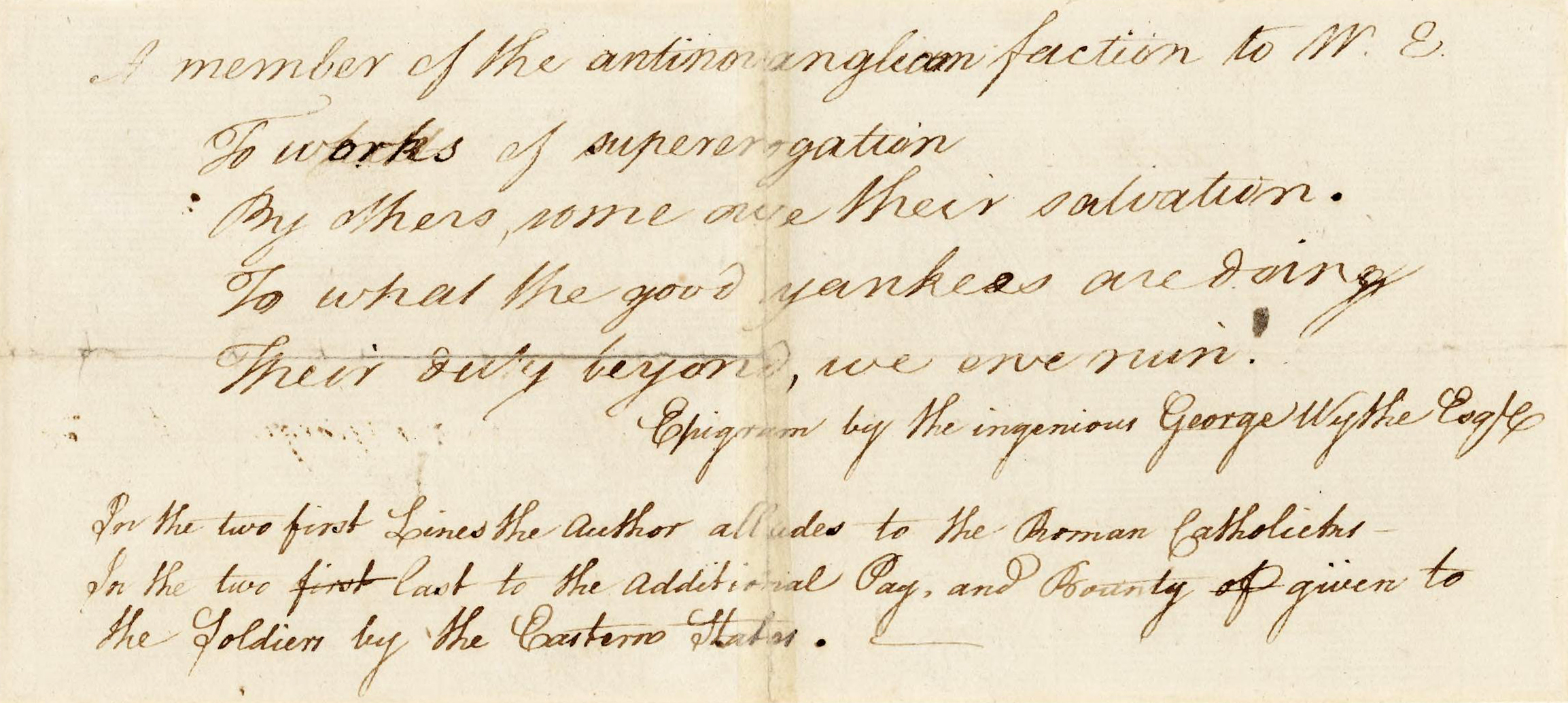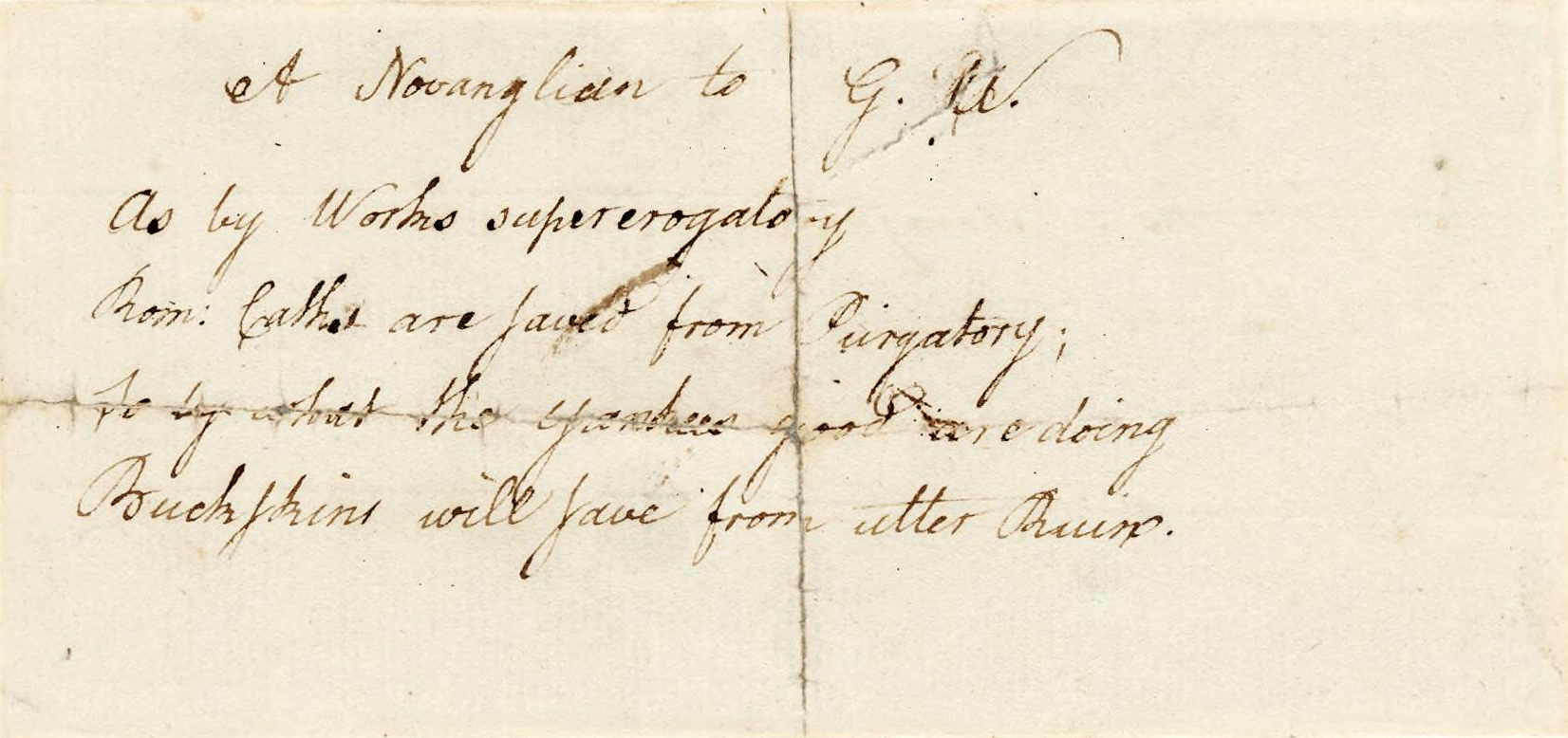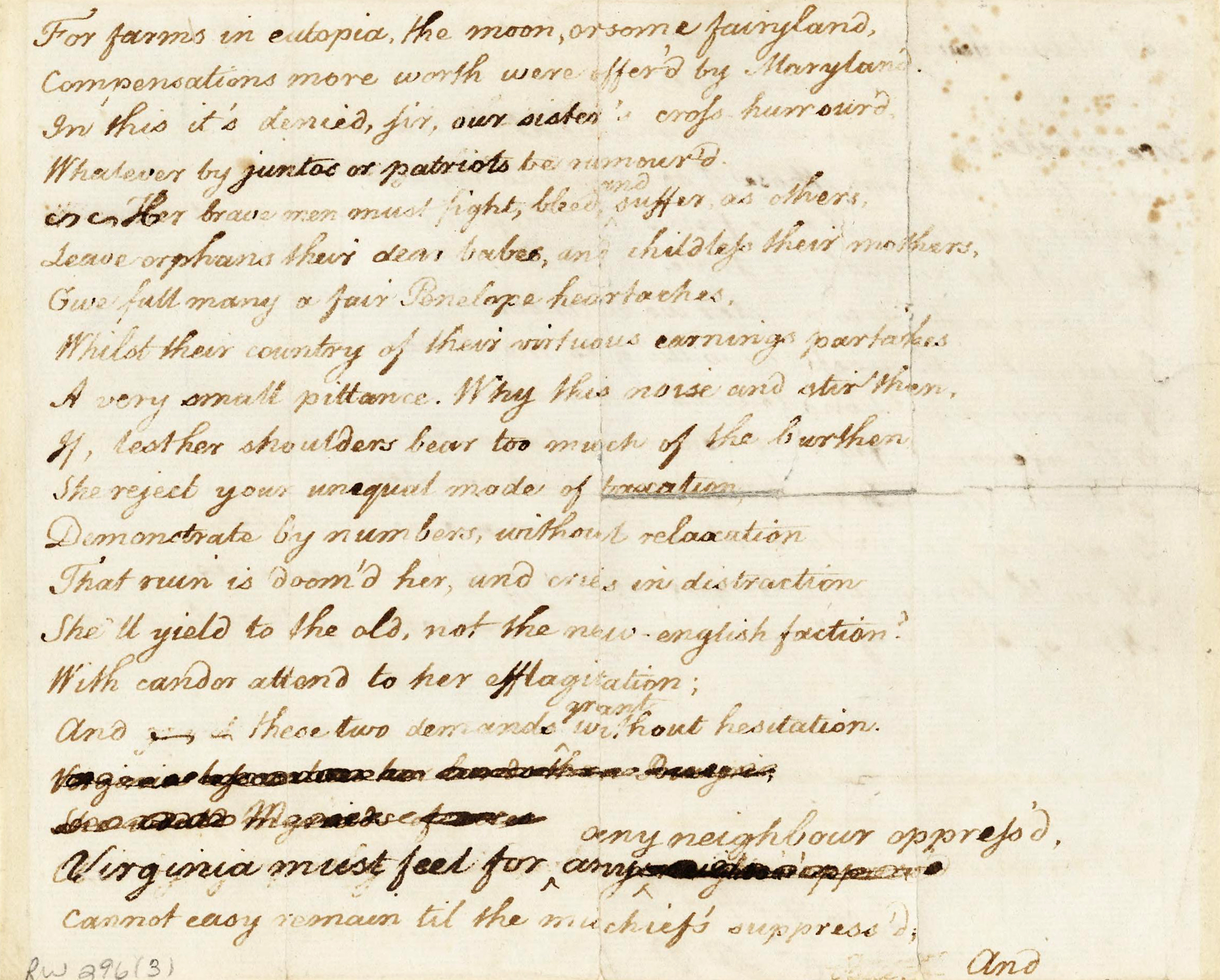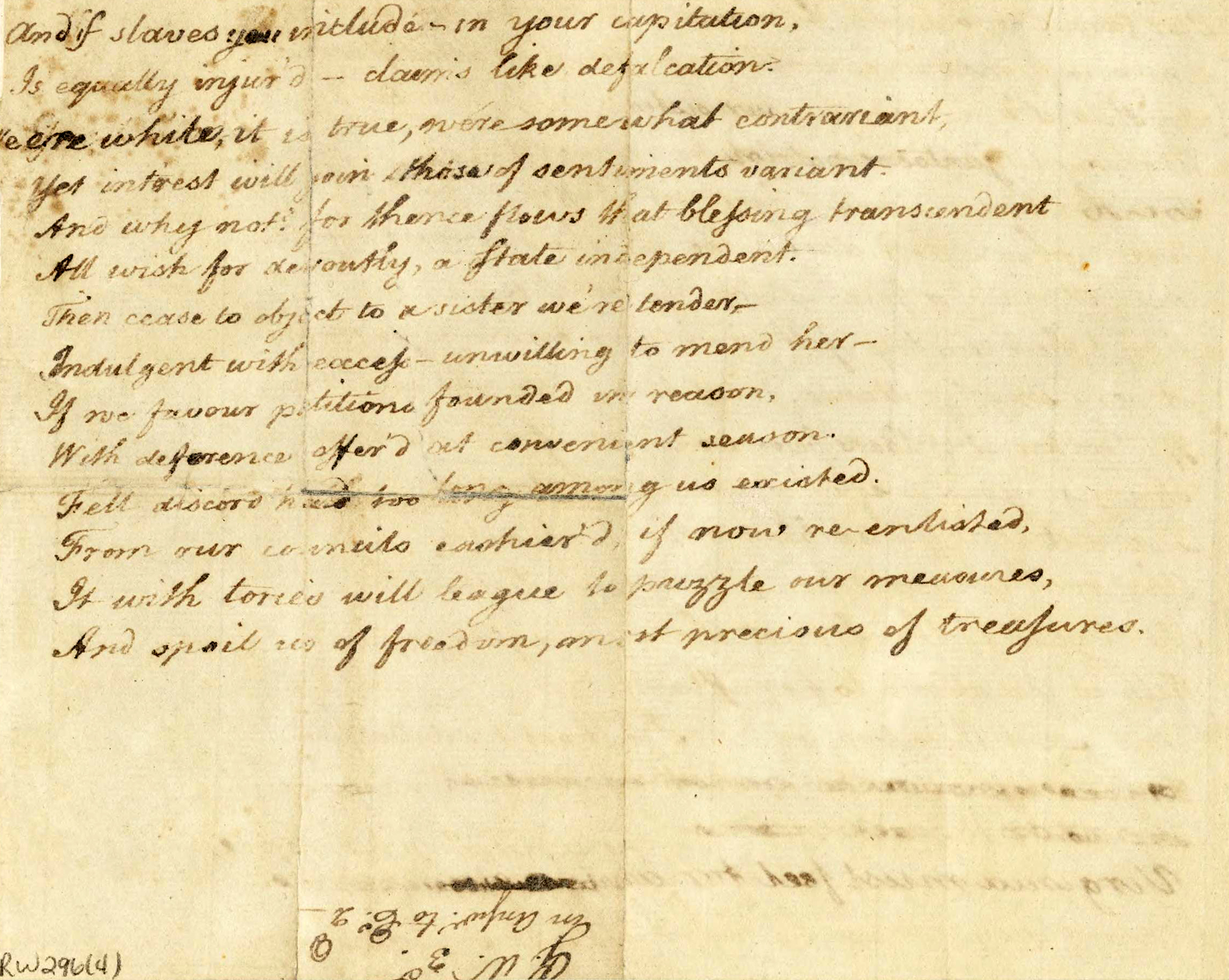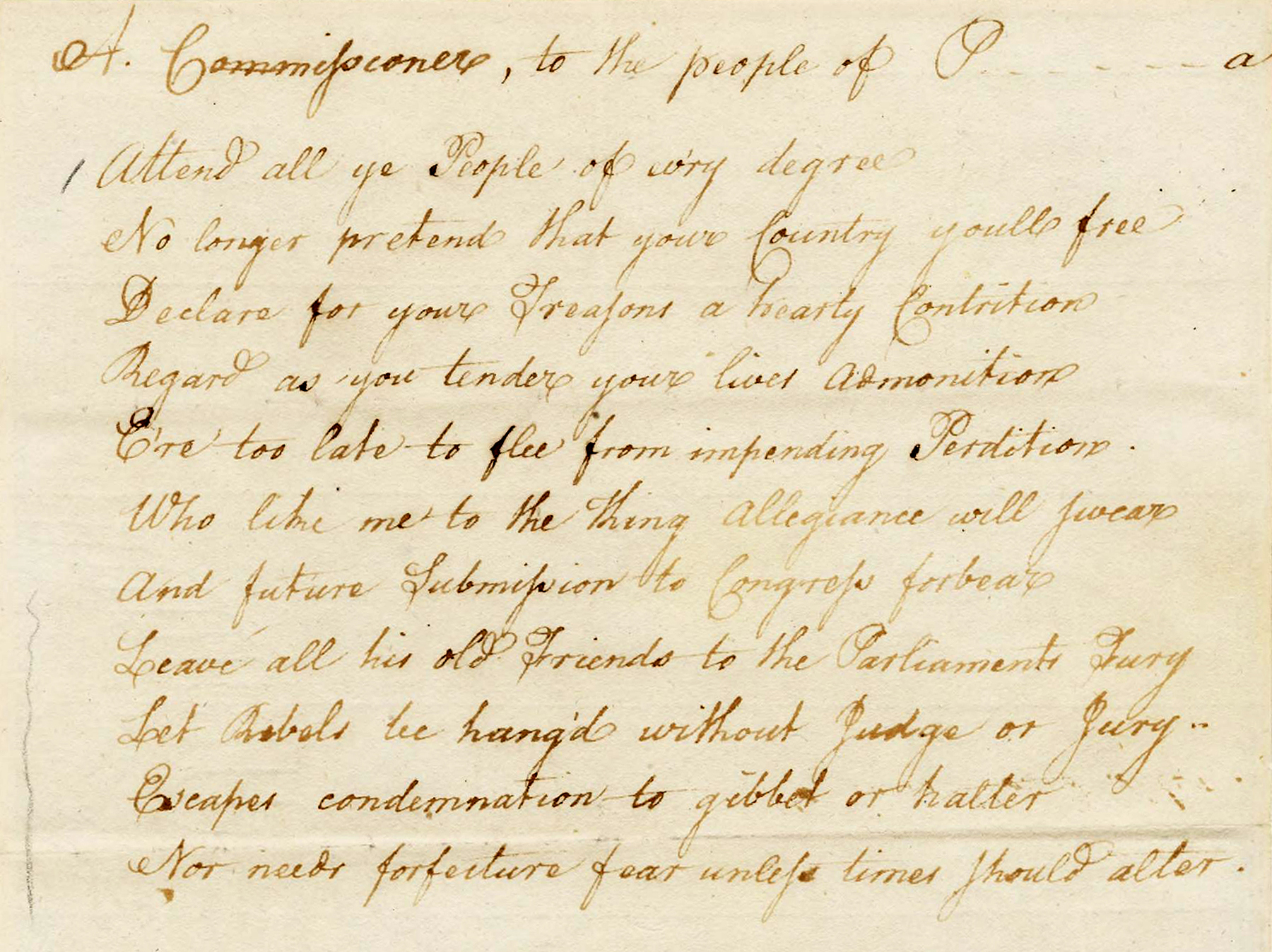Poems on Witty Subjects in Congress
George Wythe and Willam Ellery, "Poems on Witty Subjects in Congress," American Revolutionary War Manuscripts Collection, Boston Public Library, MS.Ch.E.8.31-33.[1]
Manuscript text, November-December 1776
"A Member of the Antinovanglian Faction to W. E.," by George Wythe (VA)
Page seven from Poems on Witty Subjects in Congress,] from the Boston Public Library's American Revolutionary War Manuscripts collection.
For the two first Lines the author alludes to the Roman Catholics— |
"A Novanglican to G.W.," by William Ellery (RI)
Page three from Poems on Witty Subjects in Congress, from the Boston Public Library's American Revolutionary War Manuscripts collection.
As by works supererogatory |
"For Farms in Utopia, the Moon, or Some Fairyland," by George Wythe
Page nine from Poems on Witty Subjects in Congress, from the Boston Public Library's American Revolutionary War Manuscripts collection.
Page ten from Poems on Witty Subjects in Congress, from the Boston Public Library's American Revolutionary War Manuscripts collection.
| For farms in Utopia, the moon, or some fairyland Compensations more worth were offered by Maryland. And
|
"A Commissioner, to the People of Philadelphia," by William Ellery
First page from Poems on Witty Subjects in Congress, from the Boston Public Library's American Revolutionary War Manuscripts collection.
Attend all ye People of wry degree |
See also
References
- ↑ See W. Edwin Hemphill, "George Wythe Courts the Muses," William and Mary Quarterly 3rd ser., 9, no. 3 (July 1952), 338-345.
- ↑ "Novanglian": New Englander.
External links
- Boston Public Library, Special Collections.
- American Revolutionary War Manuscripts at the Boston Public Library, Internet Archive.
- Read these poems in the Internet Archive.
